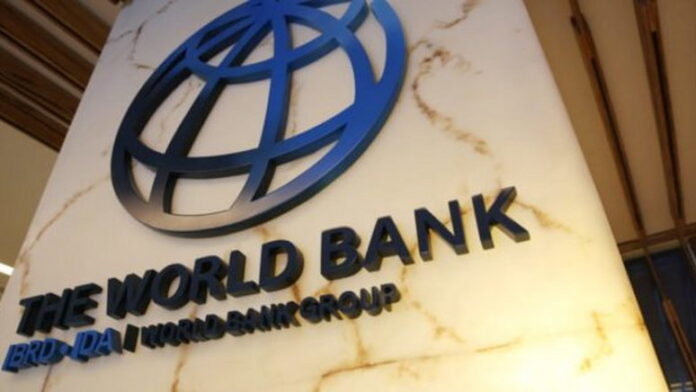The World Bank on Friday released its 2023 Logistics Performance Index(LPI) report, a measure of countries’ ability to move goods across borders with speed and reliability.
This is contained in a statement issued by the World Bank’s Online Media Briefing Centre.
The statement said the 7th edition of Connecting to Compete, the LPI report came after three years of unprecedented supply chain disruptions during the COVID-19 pandemic when delivery times soared.
It said the LPI, which covers 139 countries, measures the ease of establishing reliable supply chain connections and the structural factors that make it possible.
“This includes the quality of logistics services, trade- and transport-related infrastructure, and border controls.”
The statement quoted Mona Haddad, Global Director for Trade, Investment, and Competitiveness, World Bank, as saying “logistics are the lifeblood of international trade.
“Also trade in turn is a powerful force for economic growth and poverty reduction.”
Haddad said the Logistics Performance Index helped developing countries identify where improvements can be made to boost competitiveness.
The statement said on average across all potential trade routes, 44 days elapse from the time a container enters the port of the exporting country until it leaves the destination port with a standard deviation of 10.5 days.
“That span represents 60 per cent of the time it takes to trade goods internationally.
According to LPI 2023, end-to-end supply chain digitalisation, especially in emerging economies, is allowing countries to shorten port delays by up to 70 per cent compared to those in developed countries.
“Moreover, demand for green logistics is rising, with 75 per cent of shippers looking for environmentally friendly options when exporting to high-income countries.”
The statement quoted Christina Wiederer, co-author of the report as saying, “while most time is spent in shipping, the biggest delays occur at seaports, airports, and multimodal facilities.”
Wiederer, who is also the Senior Economist, World Bank Group’s Macroeconomics, Trade & Investment Global Practice Policies, said targeting these facilities could help improve reliability.
“Such policies include improving clearance processes and investing in infrastructure, adopting digital technologies, and incentivizing environmentally sustainable logistics by shifting to less carbon-intensive freight modes and more energy-efficient warehousing.”
The report revealed that in the 2023 LPI, the top 12 scorers were high-income economies.
“Singapore, with a score of 4.3, is at the top, a position it also held in 2007 and 2012.
“Of the top 12 scorers, eight are in Europe (Finland, scoring 4.2; Denmark, the Netherlands, and Switzerland, scoring 4.1; and Austria, Belgium, Germany, and Sweden, scoring 4.0).
“They are joined by Hong Kong SAR, China; the United Arab Emirates; and Canada.”
The report said most of these economies have for years been dominant players across international supply chain networks.
It said the bottom 10 scorers were mostly low- and lower-middle-income countries and are located on several continents.
“They are either fragile economies affected by armed conflict, natural disasters, or political unrest or landlocked countries challenged by geography or economies of scale in connecting to global supply chains.” ”
It said Afghanistan and Libya have the lowest score at (1.9), followed by Somalia at (2.0), Angola, Cameroon, and Haiti at (2.1).
Nigeria has a score of 2.6 alongside Mali and Guinea.




